
The European Commission and the Fundació Mies van der Rohe have revealed the seven finalists that will compete for the 2024 European Union Prize for Contemporary Architecture — Mies van der Rohe Award.
A total of five projects were selected as finalists in the Architecture category, with another two taken from the Emerging category out of a 40-entry shortlist that was announced earlier in January after the competition received 362 nominations for the bi-annual Prize. "Seven works exceed the paradigm of sustainability and dignify everyday architecture," the jury said about the buildings that needed to be completed within the past two years.
Projects eventually chosen as winners will "highlight and disseminate today’s shared culture of architecture in Europe through works that create high-quality living environments for everyone," according to its organizers. Judges will next make visits to each finalist before the announcement of both winners, which will take place on April 25th from the CIVA museum in Brussels. An awards ceremony follows on May 14th from the Mies van der Rohe Pavilion and Palau Victòria Eugènia in Barcelona.
"Society is often underestimating what good and clever architecture can do, on so many levels," juror Martin Braathen said of this year's field. "To promote how architecture works is a very important part of architectural communication, to explain the many ways architecture can be, and how architectural thinking can be involved in solving many complex issues. That is what this selection shows."
ARCHITECTURE FINALISTS
Plato Contemporary Art Gallery in Ostrava, Czech Republic, by KWK Promes (Poland)
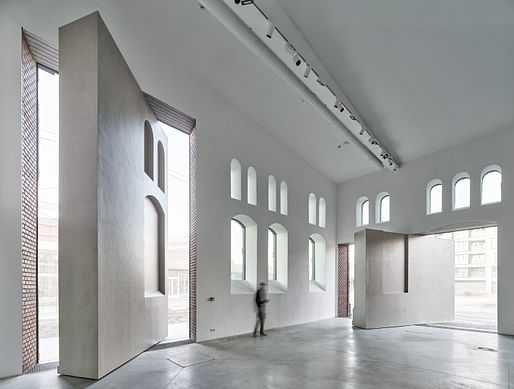
Jury comments: "By saving a historic building and turning it into an art gallery, we have introduced a solution that makes art more democratic. By rotating the walls in an unusual way, it goes outside the building. We transformed the space around the gallery, which had previously been contaminated, into a biodiverse park for the benefit of residents."
Rebirth of the Convent Saint-François in Sainte-Lucie-de-Tallano in Corsica, France, by Amelia Tavella Architectes (France)
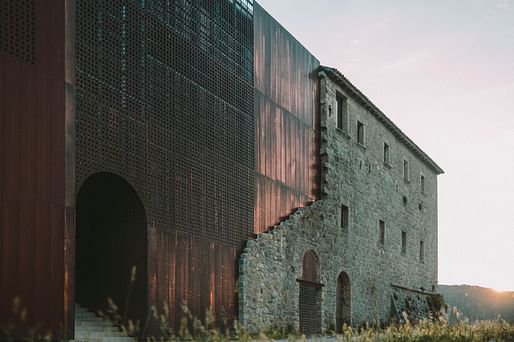
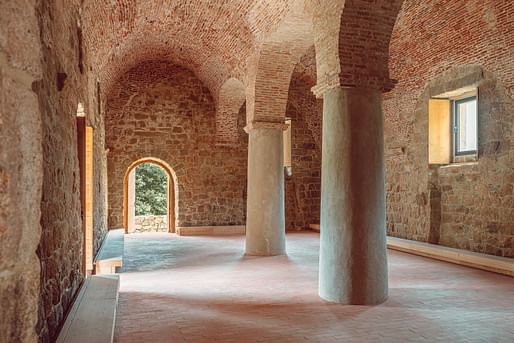
Jury comments: "This building, built in 1480, listed as a historical monument, partially in ruins, was dormant. The architect had to rebuild it without separating from the vestiges of the past. 'I believe in higher and invisible forces. Housed in a height, on its promontory, it was a defensive castle before being a place of prayer, of retreat, chosen by monks aware of the absolute beauty of the site. Faith rallies to the sublime.'"
Study Pavilion TU Braunschweig in Lower Saxony, Germany, by Gustav Düsing & Max Hacke (Germany)
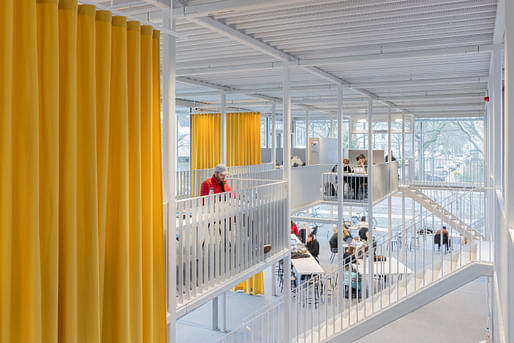
Jury comments: "The newly built Study-Pavilion on the grounds of the Technical University Braunschweig is an open space concept designed to accommodate various student activities. The concept follows the principle of a super-structure which allows the user to change and re-configure the layout of the building in order to meet the ever-changing requirements in a fast-developing campus context.Through high flexibility in layout, the Pavilion becomes ephemeral and thus responsive, ensuring a long-lasting relevance as a new type of campus building."
Reggio School in Madrid, Spain, by ANDRES JAQUE / OFFICE FOR POLITICAL INNOVATION (Spain)
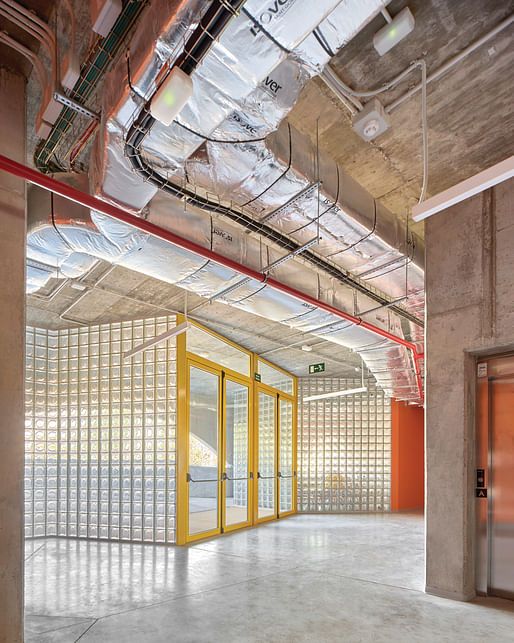
Jury comments: "The design, construction and use of the Reggio School is intended to exceed the paradigm of sustainability to engage with ecology as an approach where environmental impact,more-than-human alliances, material mobilization, collective governance and pedagogies intersect through architecture."
Häge in Lund in Scania County, Sweden, by Brendeland & Kristoffersen architects (Norway)
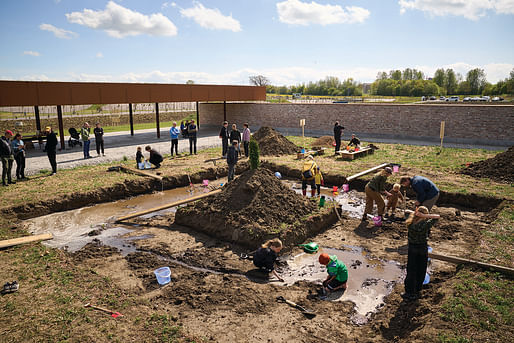
Jury comments: "'Hage' is a high-quality public space that should both work as a short-term space for public discussion, events and workshops, while also, in a long-term perspective, offer a meditative, beautiful urban space and garden at the heart of a new neighbourhood. Open to everyone, it is a response to the question of how to build a new community: start with social space."
EMERGING FINALISTS
Square and Tourist Officei n Piódão in Central Portugal by Branco del Rio (Portugal)
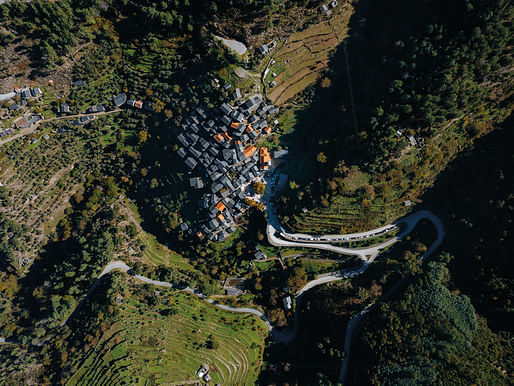
Jury comments: "The only flat and open area of the steeped village of Piódãois given back its dignity as a welcoming lobby and gathering place. What was previously a parking lot has been redesigned, paved, and partially shaded using traditional materials and techniques. The space was given to its people following their material and constructive culture."
Gabriel García Márquez Library in Barcelona, Spain, by SUMA arquitectura (Spain)
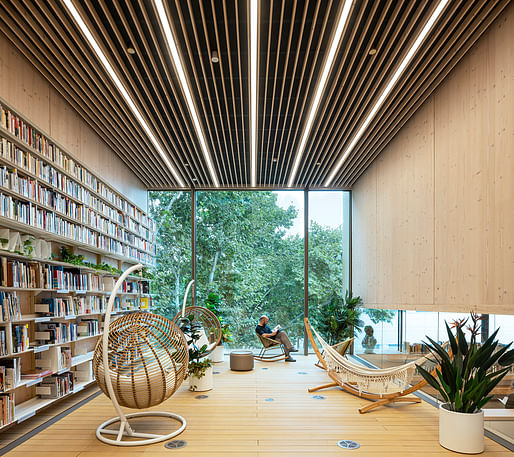
Jury comments: "The García Márquez is a pioneering and landmark library that culminates a three-decade plan building these facilities in Barcelona. It serves a working class and vindictive neighborhood, lacking significant investment for years, that demanded its "people's palace" ever since."
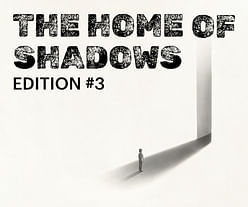
The Home of Shadows / Edition #3
Register by Wed, Jan 29, 2025
Submit by Mon, Mar 3, 2025
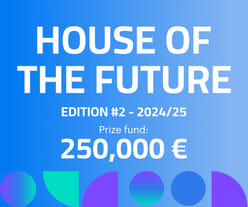
250,000 € Prize / HOUSE OF THE FUTURE 2024/25
Register by Wed, Apr 30, 2025
Submit by Mon, Jun 2, 2025
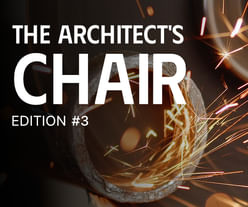
The Architect's Chair / Edition #3
Register by Wed, Jan 15, 2025
Submit by Tue, Feb 18, 2025

Peja Culture Pavilion
Register by Wed, Dec 11, 2024
Submit by Tue, Jan 28, 2025
No Comments